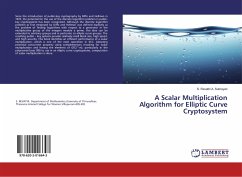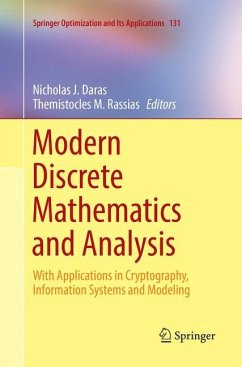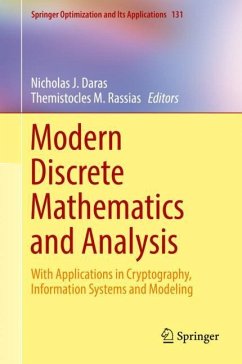
A Scalar Multiplication Algorithm for Elliptic Curve Cryptosystem
Versandkostenfrei!
Versandfertig in 6-10 Tagen
24,99 €
inkl. MwSt.

PAYBACK Punkte
12 °P sammeln!
Since the introduction of public-key cryptography by Diffe and Hellman in 1976, the potential for the use of the discrete logarithm problem in public-key cryptosystems has been recognized. Although the discrete logarithm problem as first employed by Diffe and Hellman was defined explicitly as the problem of finding logarithms with respect to a generator in the multiplicative group of the integers module a prime, this idea can be extended to arbitrary groups and in particular, to elliptic curve groups. The resulting public - key systems provide relatively small block size, high speed, and high ...
Since the introduction of public-key cryptography by Diffe and Hellman in 1976, the potential for the use of the discrete logarithm problem in public-key cryptosystems has been recognized. Although the discrete logarithm problem as first employed by Diffe and Hellman was defined explicitly as the problem of finding logarithms with respect to a generator in the multiplicative group of the integers module a prime, this idea can be extended to arbitrary groups and in particular, to elliptic curve groups. The resulting public - key systems provide relatively small block size, high speed, and high security. This book identifies an efficient performance of a scalar multiplication, which is one of the main operation in ECC. Adopting potential concurrent property using complementary recoding for scalar multiplication and having the elements of GF(2^m), particularly in the polynomial basis (PB) to use in an elliptic curve cryptosystems, computation of scalar multiplication is done.












